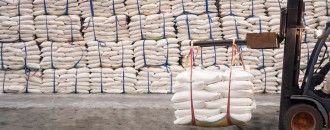
Bad loans of PSU banks 'unacceptable': Arun Jaitley
Source: PTI
Bad loans of public sector banks have reached an "unacceptable" level and an all-out effort has been launched to 'correct' their health, Finance Minister Arun Jaitley said on Friday. “NPAs, which have reached to the present level are unacceptable. They reached this level partly because of indiscretion, partly because of inaction and partly because of challenges in some sectors of the economy, which were evident through the high NPA levels in these sectors," he said. Public sector banks are saddled with huge amounts of bad debt and their gross Non Performing Assets (NPAs) stood at Rs.2.67 lakh crore at the end of last fiscal ended March 31. This accounted for over 86% of the gross NPAs for the entire banking industry at Rs.3.09 lakh crore. Expressing confidence that banks would be able to address these challenges over the next few quarters, Jaitley said, “An all-out effort has been launched to correct the health and bring NPAs down.” These include "efforts by the bank administration, the effort by the government to infuse more capital, the effort to get more finance by divesting (government holding), and then greater discretion and more importantly addressing the concerns of each of (stressed) sectors,” Jaitley said at an event in New Delhi to mark the Indian Bank Foundation Day. “And I don't have a doubt that over the next few quarters, banks will be able to address these challenges,” Jaitley said. As per global agency Moody's, Indian banks will continue to reel under the impact of bad loans in the current financial year, although new NPAs may decline. RBI has predicted that gross NPAs in the banking system are likely to increase to 4.8% by next month, from 4.6% in March. For the public sector banks alone, the gross NPAs stood at 5.2% as on March 31. The Finance Minister further said the government's plan to infuse capital into the PSU banks over the next four years will "infuse lot of financial strength" in these banks to deal with the bad loan problems. Out of Rs.1.80 lakh crore capital requirement estimated by the Finance Ministry for state-run banks, the government would be providing Rs.70,000 crore – Rs.25,000 crore each in the current and the next fiscal, and Rs.10,000 crore each in 2017-18 and 2018-19. Jaitley further said the new system to hire best talent, including from the private sector, for top posts will go a long way in improving the performance of state-run banks, which are "lifeline of the economy". "Managements are going to be increasingly professionalised. The fact that government administers them does not mean that government can appoint anyone. Therefore, a very strict appointment procedure, to get the best talent from within and outside has now been followed," Jaitley said. Jaitley said that under the new professional level of management of these banks, they will be able to respond to the expanding commitments of the Indian economy. He said the sectors like steel, power, discoms and highways were among those which generated high NPA. “And the reasons were partly domestic and partly external to the economy. Now each of these sectors is being addressed one by one,” Jaitley said. Talking about state-run banks, the Finance Minister said they are trustees of public money and therefore, the people have right to insist that banks are administered in the most effective manner and in most correct banking manner. “The banking network is expanding hugely. In fact, the health of banks itself reflects on the challenges for the economy. Therefore, while on one hand we can take some satisfaction in the fact that networks are expanding across the country, huge amount of activity is still to be done. “Fortunately we now have the advantage and benefit of technology which will take banking to every corner of the society... More and more banking is going to be enabled by technology," he said. Talking about the government's Jan Dhan financial inclusion programme, Jaitley said employees of PSU banks played the most critical role in the "huge monumental success" of the scheme. He said very few accounts had balance in them when the scheme began, but now the number has increased significantly. "You started off with a very few accounts with a balance and now you have more than 56% accounts with a balance and the Department of Financial Services tells me that over the next few months this figure is also going to expand very rapidly particularly when more and more programmes are going to come within the ambit of the DBT scheme," he said.
August 21, 2015 | 5:33pm IST.






 to success.
to success.